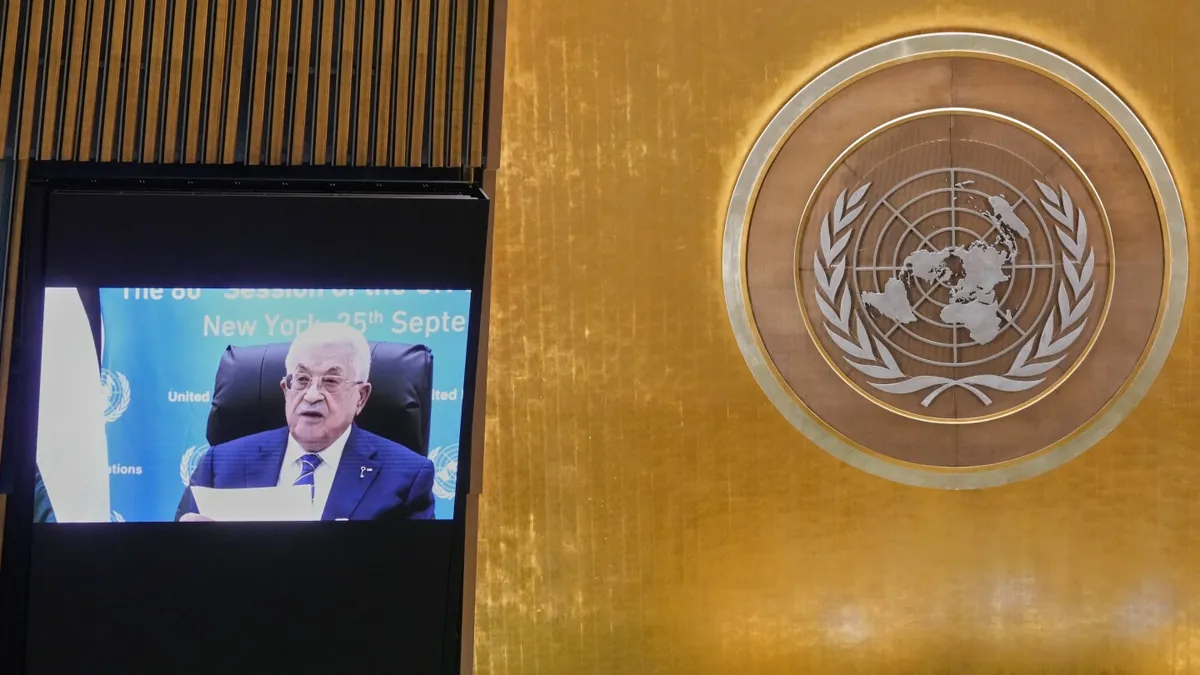
In a significant address delivered via video link, Palestinian leader Mahmoud Abbas spoke to world leaders during the United Nations General Assembly on Thursday. His speech followed the denial of his visa by the United States, and he took the opportunity to firmly reject the recent 2023 Hamas attack on Israel. Abbas made a clear pledge that the militant group, Hamas, will have no role in the governance of the Gaza Strip following the end of the current conflict and insisted that they must surrender their weapons to his administration.
During his address, Abbas highlighted the dire circumstances facing Palestinians in Gaza, stating they have been subjected to a "war of genocide, destruction, starvation, and displacement" by Israel. His comments come at a time when Israeli Prime Minister Benjamin Netanyahu is set to deliver his own address in New York, emphasizing the contrasting narratives presented by both leaders.
In a concise yet impactful speech lasting only 20 minutes, Abbas reiterated his vision for a two-state solution that encompasses both a peaceful Palestinian state in the West Bank and Gaza, alongside Israel. This vision has gained momentum recently, as several nations, including key U.S. allies, have acknowledged Palestinian statehood.
Despite these developments, the reality on the ground remains complex. Netanyahu’s government has consistently rejected the establishment of a Palestinian state, asserting that Israeli troops will maintain control over most of the Gaza Strip even after Hamas' defeat. Moreover, Netanyahu has dismissed the idea of granting Abbas’ Palestinian Authority any governing role in Gaza, with some officials in his administration advocating for the annexation of the occupied West Bank.
Abbas emphasized the necessity of freedom for Palestine, stating, "There can be no justice if Palestine is not freed." He sought to position the Palestinian Authority as a viable alternative to Hamas and Israel's plans, proclaiming that his government is prepared to assume full responsibility for governance and security in Gaza.
In his speech, Abbas asserted that "Hamas will have no role to play in governance" and must yield its weaponry to the Palestinian authorities. While Hamas has agreed to step down from power in Gaza, it has firmly opposed disarming, arguing its right to resist Israeli occupation. The historical rivalry between Hamas and Abbas’ Fatah faction has deep roots, dating back to Hamas’ takeover of Gaza in 2007 during violent clashes with Fatah.
The Palestinian Authority has faced increasing unpopularity, with many Palestinians viewing it as ineffective, corrupt, and complicit with Israel. This sentiment has grown even as Israel actively works to undermine the Authority's influence.
Abbas condemned Israel’s military actions in Gaza as "not merely an aggression, but a war crime and a crime against humanity." International experts have echoed this sentiment, with some accusing Israel of committing genocide in its assault on Gaza. In response, Israel has denied these accusations, attributing the devastation to Hamas’ actions.
In his address, Abbas expressed gratitude to global leaders who have supported the Palestinian cause amid the ongoing conflict. He welcomed recent announcements from countries like France, the U.K., and Canada recognizing Palestine as an independent state, while urging the remaining nations to follow suit. However, he stressed that such symbolic recognitions are insufficient to address the urgent needs of the Palestinian people.
Abbas concluded his speech with a hopeful message for the Palestinian people, assuring them that their enduring suffering would not extinguish their will to survive. He stated, "The dawn of freedom will emerge, and the flag of Palestine will fly high in our skies as a symbol of dignity, steadfastness, and liberation from occupation." His words resonate amid a humanitarian crisis that has seen over 65,000 casualties and widespread destruction in Gaza, with more than 90% of housing reported damaged or destroyed.
As the conflict progresses, the international community faces increasing pressure to address the humanitarian needs of Palestinians and to work towards a sustainable resolution that acknowledges their rights and aspirations.